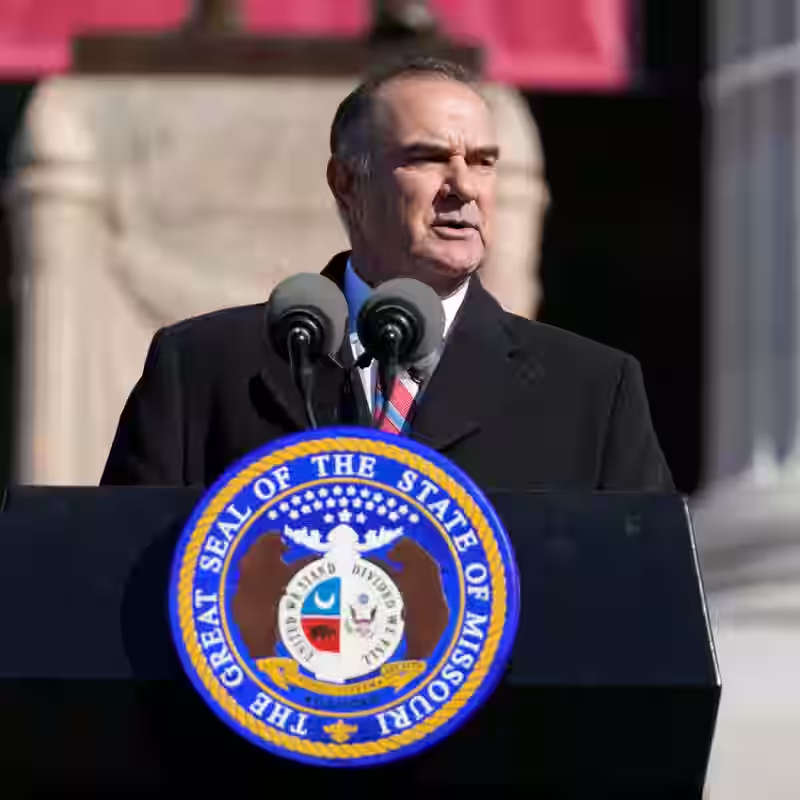Missouri Governor Enacts Controversial Redistricting Plan Days Before Election Cycle
Missouri Governor Mike Parson signed into law a newly redrawn congressional map on Saturday that critics say is a textbook case of partisan gerrymandering—designed specifically to flip a Democratic-held seat in the Kansas City area and cement Republican dominance in the state’s U.S. House delegation.

New Missouri congressional boundaries (right) dramatically reshape the Kansas City metro district to favor Republicans. (Credit: The New York Times)
What Changed in the Map?
The most significant alteration targets Missouri’s 5th Congressional District—currently represented by Democrat Rep. Emanuel Cleaver II—which includes much of Kansas City. Under the new map:
- Deep-red rural counties west and south of Kansas City are added to the district
- Democratic strongholds in central Kansas City are diluted by splitting neighborhoods
- The district’s Black voting-age population drops from 28% to 21%
- Republican-leaning suburbs like Lee’s Summit and Blue Springs gain greater influence
Political Impact at a Glance
| Indicator | Old Map (2022–2024) | New Map (2026+) |
|---|---|---|
| Current House Delegation | 6 Republicans, 2 Democrats | Potentially 7 Republicans, 1 Democrat |
| MO-5 Cook PVI | D+14 | D+4 (estimated) |
| Competitive Rating | Solid Democratic | Toss-up / Lean Republican |
| Black Voting-Age Population | 28% | 21% |
Backlash and Legal Challenges
Opponents—including civil rights groups, the Missouri NAACP, and the League of Women Voters—have already filed a lawsuit in state court, arguing the map violates the Missouri Constitution’s requirement for districts to be “contiguous, compact, and attempt to preserve communities of interest.”
“This isn’t redistricting—it’s rigging,” said state Senator Barbara Washington, a Kansas City Democrat. “They’re silencing Black and urban voices to grab one more seat in Washington.”
The plaintiffs are seeking an emergency injunction to block the map from being used in the 2026 elections.
Why Now?
Missouri’s legislature was forced to redraw maps after the state Supreme Court struck down the previous version in July 2025 for violating transparency rules. Republicans, who control both chambers and the governorship, used the do-over to aggressively optimize for partisan gain.
“We followed the law and reflected the will of Missouri voters,” said Senate Majority Leader Cindy O’Laughlin in a statement defending the map.
National Implications
With Republicans holding a narrow majority in the U.S. House, flipping even one seat in a state like Missouri could prove decisive in the 2026 midterms. National GOP groups have already signaled support for challengers in MO-5.
Meanwhile, Democrats see Missouri as a warning: without federal redistricting reform, state-level gerrymandering will continue to distort representation.




